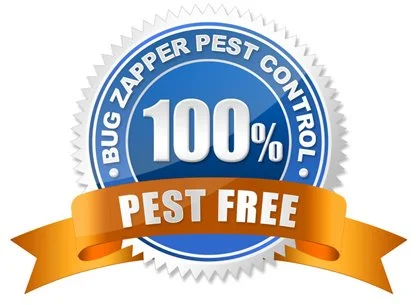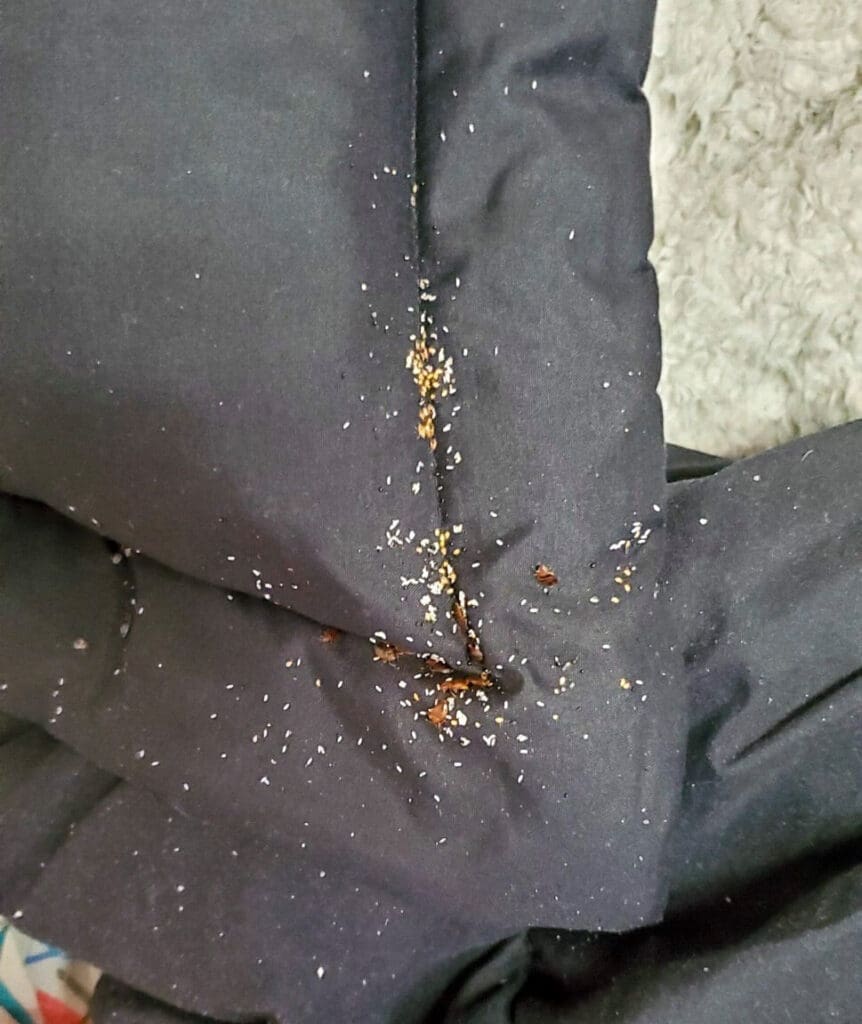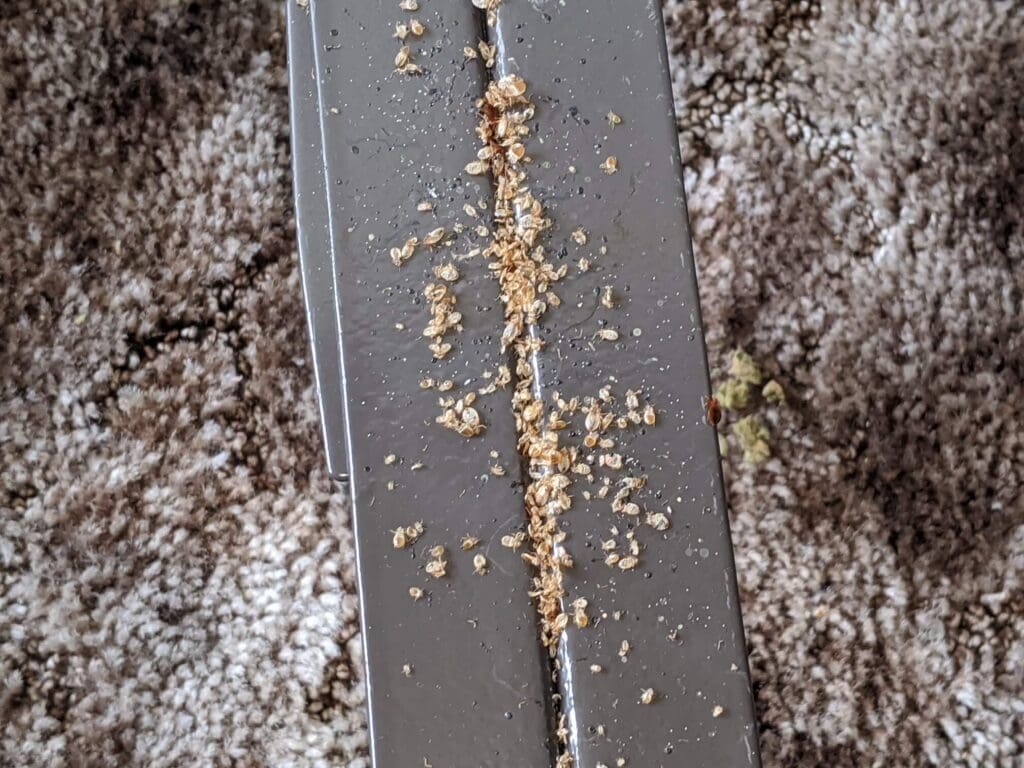
Bed Bugs Prevention and Avoidance Tips
Protect yourself from bed bugs with these professional tips on bed bug prevention and treatment.
Jacob Lander
Field Technician and Owner
Service Region
Most of the state of Oregon
Specialties
Jacob started Bug Zapper Pest Control 8 years ago and has a Bachelor’s degree in Economics from BYU. He is licensed in 5 categories with ODA.
Background and Training
Jacob has first-hand experience treating bed bug infestations, with over 8 years on the job. From his years of dealing with the problem in both homes and commercial spaces he has gained unique insights and knowledge of the bed bug problem and shares his top advice on what you can expect when it comes to bed bugs. From tips on preventing a bed bug infestation to surprising misconceptions and myths, read on for insider tips from professional bed bug exterminator Jacob Lander.
What Are Bed Bugs?
Bed bugs have been around for millions of years, even found in tombs from Ancient Egyptians. Being around so long means they are great at surviving and are tough pests to get rid of. These small, reddish-brown, parasitic insects are about the size of a tick and love to feed primarily on humans but can also feed on warm-blooded animals and pets.
Bed bugs get their name from their preferred habitat — bedding — but can also be found in sofas, clothing, nightstandsand other furniture.
Are Bed Bugs a Problem in Small Towns?
The short answer is YES! Many people think that bed bugs are found only in big cities or dense low-income housing, but this just isn’t true. As a pest control technician, I’ve found bed bugs to be a real threat no matter where you live or how plush the accommodations.
While sleeping locations are primary hotspots, I’ve found and treated bed bugs in call centers, office buildings, community centers, public libraries and other locations where people don’t even sleep but simply spend long periods sitting in a chair.
And having a bed bug infestation will likely cause more stress and turn life upside down more than any other pest out there. But I have some tips that can help with preventing bed bugs and what to do if you get them.
Signs of Bed Bugs
The most obvious sign that you have a bed bug infestation is if you or others in your home are waking up with red, itchy bites — their peak feeding time is between midnight and 5 a.m. If that’s the case, it’s time to check your bedding ASAP! Carefully check the bed linen and the seams and tufts of mattresses and box springs for bugs or eggs.
What to look for:
- Bite patterns alone are not a reliable indicator of an active bed bug infestation
- Dark spots that look like black mold on walls behind picture frames, in the seams of mattress, under the tag of a mattress or in the pleats of mattress covers. This is bed bug fecal matter.
- Blood spots on the sheets or mattress
- Actual bedbugs
If you find live bugs, carefully collect them in a sealed container. This helps our professionals identify if they are truly bed bugs or another pest that might be living in your home.
What Can I Do to Protect Myself?
There are precautions you can take to help minimize your risk. Here are a few tips my eight years as a field technician have taught me about preventing a bed bug infestation:
- Don’t assume you’ll never get bed bugs where you live.
- Inspect the headboard and mattress before bringing your personal items into a hotel room.
- Look for black spots that look like mold in the seams and folds.
- Get help and lift the headboard off the wall so you can check behind it.
- Look under tags on mattresses and in the pleats of mattress covers since these are likely hotspots for bedbug activity.
- Empty suitcase contents directly into a dryer and run a hot cycle to kill any hitchhiking bed bugs when returning home from a trip.
- Store suitcases in areas of the home where you don’t sleep.
- Carefully inspect all second-hand items before introducing them into your home.
I Think I Have Bed Bugs, What Should I Do?
If you think you might have introduced bed bugs into your home, follow these steps:
- Get help sooner than later. The cost of treatment can increase exponentially as bed bug populations explode.
- Avoid over-the-counter bed bug products. They usually make the problem worse. These are tough pests and this is one instance where DIY is a BAD idea.
- Get a professional inspection. It’s worth the peace of mind it will bring.
- Put light-colored sheets (for easy detection) on the bed, anddon’t move furniture or anything else until help arrives.
- Consider professional preventative treatments if you’ve had bed bugs several times. Preventative treatments can really work.
What to Expect From Our Bed Bug Service
Bed bugs multiply quickly and can be very difficult to eliminate. Trying to eliminate a bed bug infestation with do it yourself products is like trying to play baseball with one hand tied behind your back. It is going to be TOUGH!
If you think you have a bed bug infestation, don’t hesitate to give us a call. The faster we can start treating, the faster you can rest peacefully.
You might be tempted to try oust these pests yourself to save money, but from my years working with small to massive bed bug infestation, this is one pest that hiring a pro is totally worth it. Even one bedbug left behind can lead to an entirely new infestation a few months later. The experts on my team can help identify these pests and implement the right methods for total elimination. Get ready for our first visit by reviewing other important tips on what to expect and how to prepare before we arrive.
Ready to live bug-free? Give us a call today.
Get Help From Our Experts
“It went very well. They called the day before saying they would be here at a certain time and they were. Wasted no time starting and getting the job done and left. I would hire again and recommend them to friend and relatives.”
Our Pest-Free Guarantee
Satisfaction Guaranteed
We cheerfully offer a 100% guarantee on every service we provide!

Get answers to your pest question now! Call or Text Us.
AREAS WE SERVE







